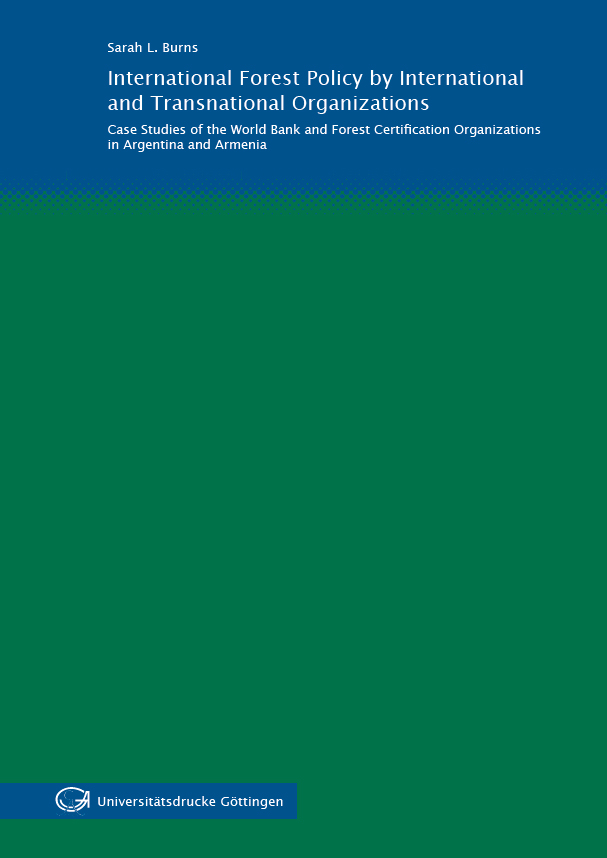In recent decades, globalization and internationalization led to an increase in the number of international regimes attempting to influence national behaviour over many different issues. By using the case of the international forest regime complex this thesis seeks to evaluate how an international organization such as the World Bank and private institutions of forest certification influence domestic forest policy. The cases of Argentina and Armenia were selected as examples of developing countries open to international influences with weak forest sectors that went through a recent administrative restructuring. In so doing this dissertation seeks to answer how do international and transnational organizations influence domestic forest policies? The results show that: the influence of the World Bank in Argentina and Armenia pushed the forest sector towards deregulation; state bureaucracies play an important role in the implementation of transnational regimes at the national level; the political system of federal countries provides multiple institutional access points for policy change that international and transnational regimes try to use in order to influence the domestic level, consequently changing the power balance of the domestic networks.
Publikationstyp: Hochschulschrift
Sparte: Universitätsdrucke
Sprache: Englisch





